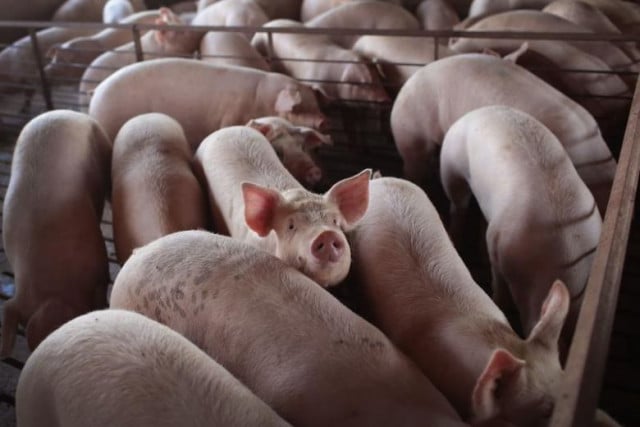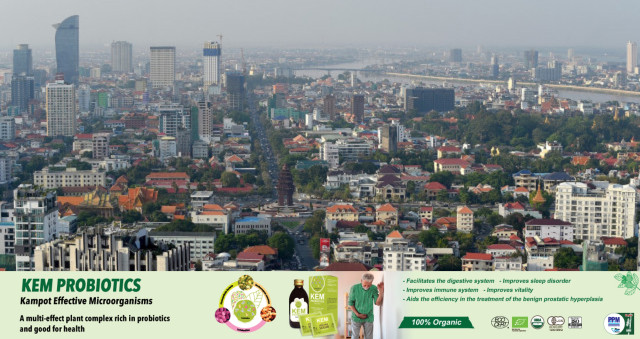'Rapid and far-reaching' spread of African pig virus seen

- Thmey Thmey
- May 10, 2019 12:51 AM
As disease spreads to Cambodia, Laos, Mongolia and Vietnam, FAO sees high chances of it spreading ‘far and fast’ — and possibility of virus resurfacing years later
An outbreak of African Swine Fever (ASF) in East Asia is likely to have a noticeable impact on meat and feed markets worldwide, the Food and Agriculture Organization of the United Nations (FAO) says.
In its twice-yearly Food Outlook released Thursday, the FAO said: "The extent and speed of the spread and the number of countries affected are still uncertain.”
The Rome-based agency said the May 2 update of its Emergency Prevention System for Animal Health "suggests that ASF continues to spread within China.”
It said the virus was now endemic in the autonomous regions of Tibet and Xinjiang. Overall, 28 provinces, autonomous regions and municipalities have been affected and more than one million pigs culled.
"ASF is now also making inroads into other Asian countries with significant pig herds, notably Viet Nam, but also the Lao People’s Democratic Republic, Cambodia and Mongolia,” the FAO said.
"While Cambodia’s and Mongolia’s production levels are small by global standards, Viet Nam is the fifth largest pig meat producer worldwide."
Inadequate biosecurity standards
The Food Report noted “concerns” about husbandry practices in East Asia that “fail to provide the required biosecurity standards to contain the disease."
In East Asia, “pig production is dominated by small, backyard operators, keeping their sows and hogs outside in confined production environments, feeding them with table scraps or uncooked organic refuse,” it said.
“There is also a lack of vertical integration, which means that piglets and sows need to be transported between farms and sometimes even across regions.
“This is further supporting a rapid and far-reaching spread – either from the introduction of infected or ill animals or the entry of contaminated vehicles and equipment.”
‘Highly resistant’
The FAO warned that intra-regional trade could be an “important vector” for the disease to spread.
“There is a lively exchange of all sorts of pork products within the region, including sausages, cured meats and other processed pig meat products,” it said.
"They may all contain the ASF virus, which is highly resistant to temperature and other treatments (salting) and can persist for months or years.
"This means that the chances of ASF to spread far and fast are not only high, but the disease may resurface in the region even years after the initial outbreak.”















